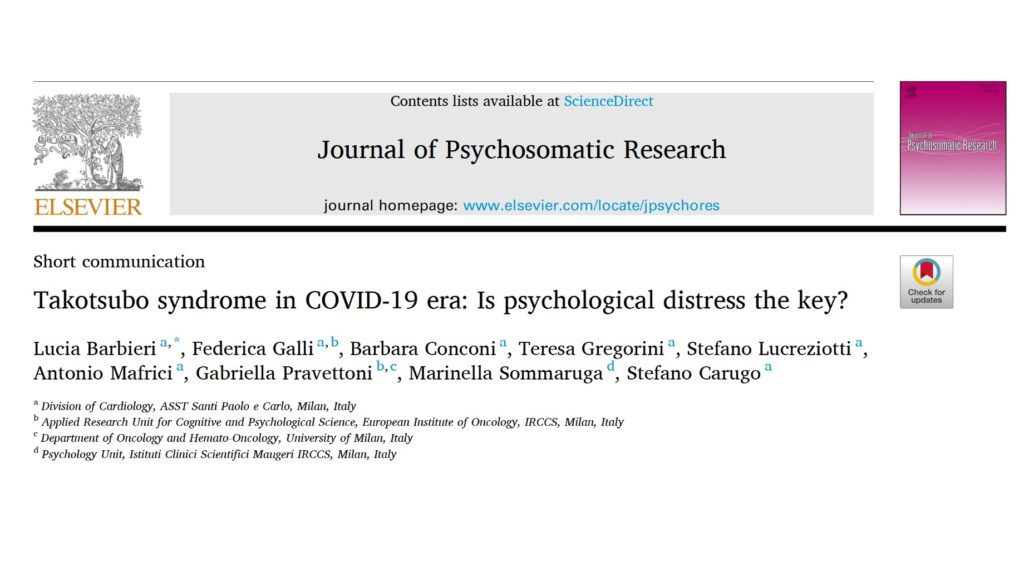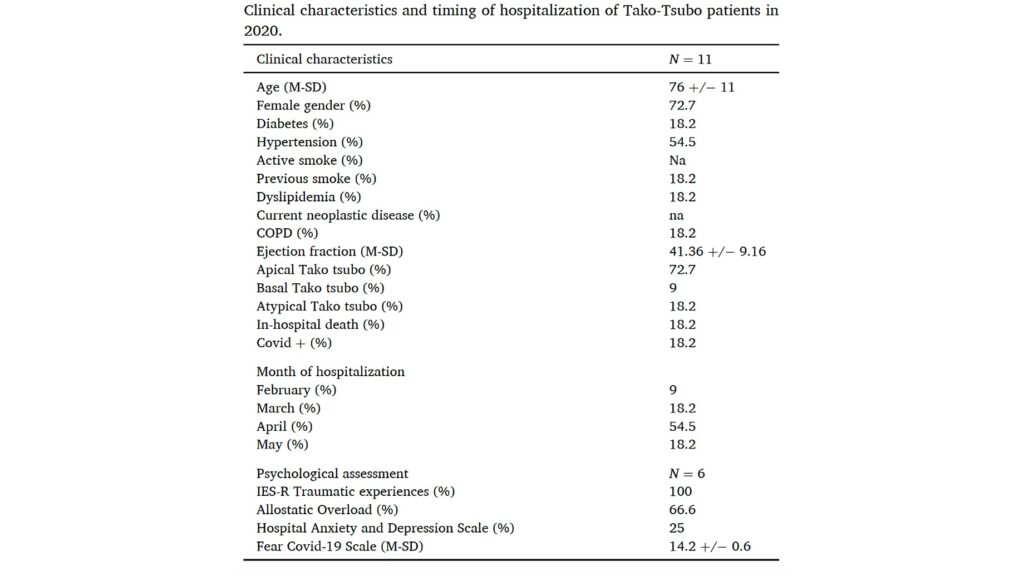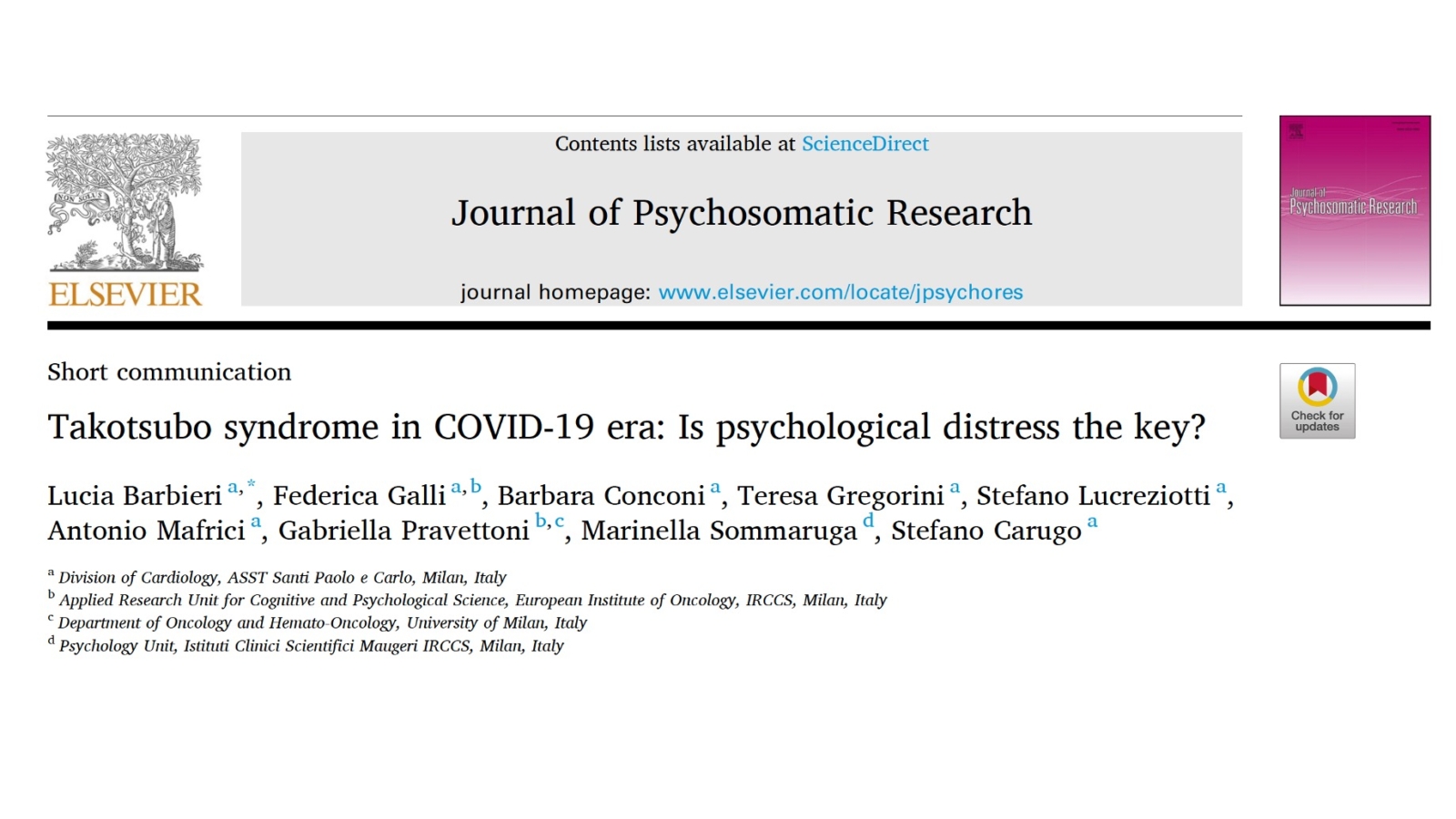First author: Lucia Barbieri
Division of Cardiology, ASST Santi Paolo e Carlo, Milan, Italy.
Commentary by Luca Allievi, MD, Department of Cardiology, Fondazione IRCCS Ca’ Granda Ospedale Maggiore Policlinico, University of Milan, Milan, Italy.
COVID-19 pandemic has radically changed our lives: the world has been completely overwhelmed by the fear of being infected, demonstrated by the significant decrease in the number of emergency department visits and cardiology procedures. The social isolation and quarantine contributed to the onset of pessimism, mental disorders and marked stress.
Stress is a risk factor for cardiovascular diseases. The relationship between Tako-Tsubo syndrome (TTS) and stressful events has been demonstrated by several studies, though the pathophysiology has not been completely understood yet. The decrease in cortisol and the increase in catecholamines has been associated with TTS.
During the COVID-19 pandemic (February to May 2020), Barbieri et al. detected a higher number of admissions for TTS compared to the same period of 2019 (11 vs. 3). Two patients were male, positive for COVID-19 and both unfortunately deceased. Six of the remaining women (all negative for COVID-19) underwent a psychological assessment, which consisted of the evaluation of allostatic overload, psychological distress, traumatic experiences and the fear of COVID-19 through questionnaires and scales (DCPR-R, HADS, IES-R, Fear COVID-19 scale, respectively). They reported a particularly stressful experience at IES-R in the last year, without presenting the symptoms of a post-traumatic stress disorder; in addition, all patients were positive about the allostatic overload. Therefore, subjects with pre-pandemic psychological distress may have experienced additional psychological overload with a series of physiological alterations (as the secretion of cortisol and catecholamines), making the subject more vulnerable to the onset of TTS.
This study suggests the existence of a relationship between psychological distress caused by the COVID-19 pandemic and TTS. Male patients are less likely to develop TTS, but the SARS-COV-2 infection may have triggered TTS by further increasing the pre-existing psychological distress; afterwards, COVID-19 infection and TTS certainly had a synergic effect in determining the poor prognosis in these patients.
For this reason, it would be important to relieve stress and anxiety among people, mainly through social media, which often have an opposite effect instead
Read more at https://pubmed.ncbi.nlm.nih.gov/33242703/



